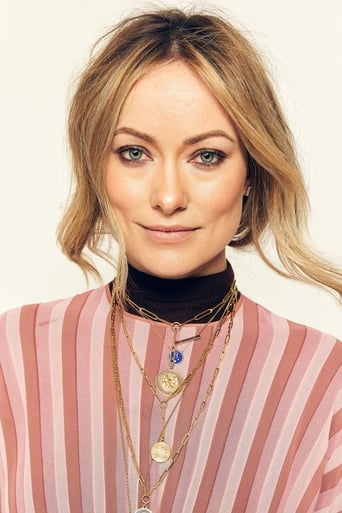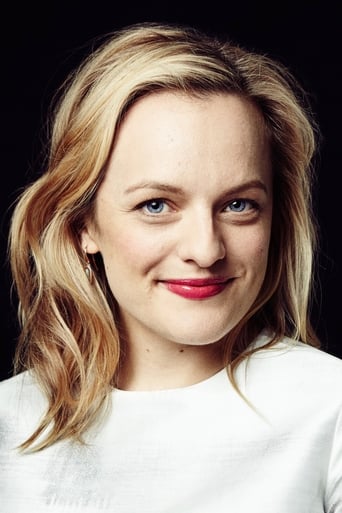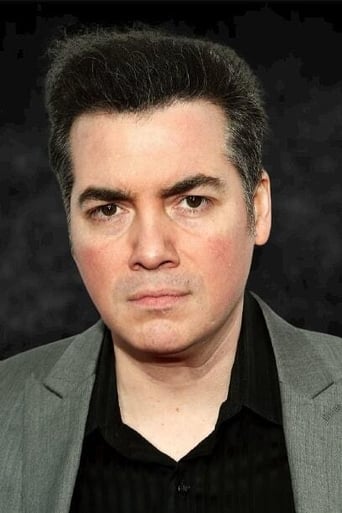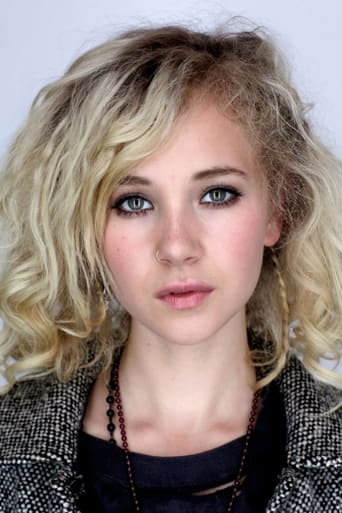willcarson4358
Meadowlands is outstanding on many levels. It had a risk of being unbalanced and overly melodramatic or otherwise missing the point of the reality of what the film -through the writer- intended to convey which was the story of people who do go through this reality. While it had flaws if you looked hard for them, what stood out was what could be attributed to the direction, sound score, cinematic filming, and balanced overall presentation of the story. The actors all did what really talented actors can do. It was a very well done and worth seeing film. (Well, need more lines to submit review.) Regarding two things worth mentioning, The camera work was with a very fast lens and the ending scene was outstanding in how it brought the story to a conclusion.
Johan Dondokambey
The movie did a great job in hitting the main conflict trigger so early at the start point. And after that we get to see the devastating effects of how non-reconciled loss can lead to turmoil little by little. In it we get to see superb acting done by Olivia Wilde and quite a balanced job by Luke Wilson. The other cast members also helped much in keeping the mood constant all the way through. Ty Simpkins did well in depicting the Adam's symptoms. Giovanni Ribisi succeeded in creating a character that's complicating things up, while John Leguizamo, Elisabeth Moss and Kevin Corrigan also put up well in their parts. Yet the movie seems so much lacking in the story development, as we see Phil and Sarah repeat things up so very often without any significant twist or turn. This makes the ending to be a disappointment as it's really something one predicted even from the movie's start.
tlolax
I suppose the reason most movies are so instantly forgettable is because, like the popcorn we shovel into our mouths distractedly while watching them, most movies are just bland, uninspiring, and only temporarily filling. They take few risks, break no new ground, and therefore leave us as we were when we entered the theater: hungry for something more substantial and memorable. Well, much admired cinematographer Reed Morano's first turn in the Director's chair, the haunting, visceral and formula shattering "Meadowland," which I caught at the Tribeca Film Festival last weekend, is simply unforgettable and searing. It burns its way into your memory, taking you on an ever-escalating trip through the unraveling of the world of parents unable to get any closure over a missing child who vanishes without a trace or clue, leaving the parents frozen in the time of the disappearance, immobilized yet stumbling through the mundane as they spend their days in a daze of incomplete, inchoate grief.How do you mourn someone who is not dead but simply unaccounted for? In the hands of a less sensitive and brave director and cast, such a story would, at various times, turn melodramatic or maudlin, but Morano and her superb cast, led by Olivia Wilde, stay with the pace at which life honestly moves when grief is the gnawing feeling you wake up with every day. You live, but your life is lifeless, and every day their son stays missing is a little less a day for hope. Wilde gets progressively gaunt and hollowed with the passage of time, and she delivers a disciplined performance of aching realism, never giving in to the temptation to play Sarah broadly or with hand-wringing sympathy. Sarah's husband Phil, played by Luke Wilson in the equally defining role of his film career, is similarly staggered by his son's disappearance but falls down the rabbit hole of loss by a somewhat different route. While Sarah goes from lithium to lethargy, Phil goes for support from a group that includes John Leguizamo, superbly cast against his usual type, but Phil misunderstands the nature of support and loses a friend as he tries to take a shortcut in the twelve steps to rehabilitation. Wilson's eyes rarely show signs of the life he had before his son went missing; even when he is dealing with a domestic dispute with potentially explosive consequences, he seems bored by the banality of daily life even as he urges Sarah to accept the reality of their loss.Morano clearly loves the actors with whom she works and gets career-defining performances from most of them, especially her two leads. Her dual role as cinematographer never seems to burden her. In fact, it may help to have the person actually behind the camera stand behind her actors. Her visuals are remarkably, even almost shockingly, bright and clear, from Sarah's yellow hoodie she wears when prowling the crowded city streets looking for her son to the clouds that hover over an otherwise dreary landscape of loss. Morano is a force to be reckoned with, and Meadowland is a film that celebrates her skills for story telling and her knack for getting the most out of her stars. Wilde and Wilson have never been better, but one senses Meadowland is just the beginning of even richer and deeper roles for both of them for a very long time. Meadowland is not without problems. The script tends to wander in the third act as if, like Sarah and Phil as they stumble through the fog of grief, not everyone is sure where things are ultimately headed. And let's be clear: this is not a subject matter that begs to be seen in a multiplex on a feel-good night out. But if film is indeed a window into our true selves, then Meadowland succeeds on every level because Morano, Wilde and Wilson are brave enough to tell a story without artifice and resolution. Much as we know, when we are truly honest with ourselves, that we have to live our lives without a story arc with a clear beginning, middle, and end, Meadowland honors the courage it takes just to keep living, especially when those who were so important that they were the center of those lives, cannot.





